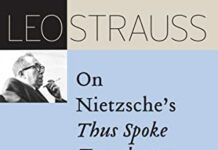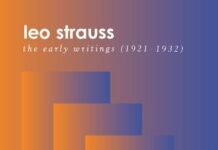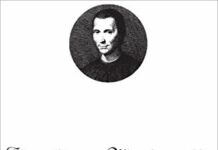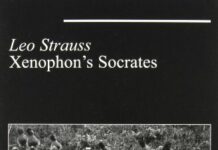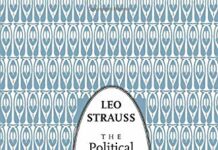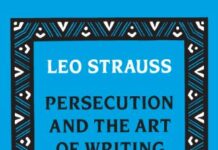
Ebook Info
- Published: 2059
- Number of pages: 334 pages
- Format: PDF
- File Size: 19.80 MB
- Authors: Leo Strauss
Description
Leo Strauss articulates the conflict between reason and revelation as he explores Spinoza’s scientific, comparative, and textual treatment of the Bible. Strauss compares Spinoza’s Theologico-political Treatise and the Epistles, showing their relation to critical controversy on religion from Epicurus and Lucretius through Uriel da Costa and Isaac Peyrere to Thomas Hobbes.Strauss’s autobiographical Preface, traces his dilemmas as a young liberal intellectual in Germany during the Weimar Republic, as a scholar in exile, and as a leader of American philosophical thought.”[For] those interested in Strauss the political philosopher, and also those who doubt whether we have achieved the ‘final solution’ in respect to either the character of political science or the problem of the relation of religion to the state.” —Journal of Politics”A substantial contribution to the thinking of all those interested in the ageless problems of faith, revelation, and reason.” —Kirkus ReviewsLeo Strauss (1899-1973) was the Robert Maynard Hutchins Distinguished Service Professor Emeritus of political science at the University of Chicago. His contributions to political science include The Political Philosophy of Hobbes, The City and the Man, What is Political Philosophy?, and Liberalism Ancient and Modern.
User’s Reviews
Reviews from Amazon users which were colected at the time this book was published on the website:
⭐Strauss’s works are notoriously demanding for the reader. He later came to focus on the esoteric nature of writing and how writers would write in ways that would hide their true message from censors and those who might punish them. His book about Socrates and Aristophanes emphasizes how the poet warns the philosopher that his concerns about the natural world will lead to no good unless the philosopher also pays attention to the superstitions of the human world.The early Strauss displays the endurance and focus to draw out interesting points in the texts that he studies. The simple message Strauss comes up with by his reading of Spinoza and his genealogy including materialists like Epicurus, Lucretius, Hobbes, the rationalists Maimonides, Descartes, and innovative interpreters of the Biblical tradition such as Uriel Da Costa, Isaac De La Peyrere, and John Calvin is that Spinoza has failed to overturn orthodoxy through his reading of the Scripture. In the process, Strauss reveals interesting gems such as the correspondence of Spinoza’s equation of God and nature with a Calvinist conception of predestination, Herman Cohen’s criticism of Spinoza for his betrayal of the Jewish people, and De La Peyrere’s plan to return a converted Catholic Hebrew people to their own state in the Holy Land.The close reading and bold questioning of different lines of reasoning is classic Strauss and can explain why many of the people reading him conclude his understanding of classical rationalism was grounded in the experience of a searching skepticism. Strauss succeeds in making us reconsider Spinoza’s triumph over orthodoxy, but he also makes us aware of a potential war against philosophy by the representatives of orthodoxy. He leaves us with a tension that exists between Jerusalem that demands obedience and Athens that demands the truth. The attempt of Spinoza to build the classical philosophic life of contemplation on modern science through attacking orthodoxy and unseating orthodoxy is judged to be a draw. The arguments of the faithful are unmoved by the philosopher and the philosopher’s arguments are unmoved by the faithful. From a political perspective, Spinoza’s philosophy appears to be in need of religion to keep the multitude under control so that the philosopher can engage in the contemplation of the truth of God-nature. Spinoza appears to be in the same position as his predecessor Socrates.The richness of the text requires multiple readings and each reading will yield interesting insights for those wishing to follow the problems revealed by great minds trying to address the problems of their own time and perhaps even of the nature of eternity. Strauss approaches the thoughts of great thinkers with the reverence that religious scholars have approached holy scripture and he uncovers many solutions, problems, and mysteries through his efforts. If you love to think and believe that thinking matters, you will enjoy Leo Strauss. It helps to be familiar with the works Strauss discusses if you want to gain the most from his commentaries. This price may bar many from benefitting from reading his books.
⭐Amazing Richard is the best!!!
⭐Heavy going and penetrating analysis of Spinoza’s Critique. A good source for seeing how Leo Strauss mines his material for nuggets of philosophical debate.
⭐If Leo Strauss says it, it’s true and valuable. He was simply amazing, the best 20th-century commentator on philosophy.
⭐Reading Strauss is like reading a book devoid of punctuation. His sentences are long, cumbersome, and obscure. He could have stood a course in Journalism or Creative Writing. I’m a history and philosophy buff, but I found this book to be inpenetrable.
⭐Great book, rapid delivery. Thanks
⭐There is a single idea held by the thinkers that Leo Strauss discusses in this perceptive book. Each recognized that the general population turned to religion because they were searching a life that is devoid of anxiety and pain, a metaphorical return to the Garden of Eden. Each recognized that people may think that religion removes these burdens, but by turning to religion, they moved from the kettle into the fire, for religion encumbers people with a host of responsibilities and bother.These thinkers were correct in stating that religion adds responsibilities, but they were wrong in saying that humans have a right to a tranquil life. They did not see that the tranquil life they sought is the non-human vegetative life of a plant or animal. They failed to understand what the great Jewish philosopher Moses Maimonides (1138-1204) taught – that humans were created with a mind and have a duty to develop it to improve themselves and society. This task is not easy. It is difficult and burdensome. It requires constant, even daily effort. But it is the human thing to do.Religion can be an opiate, as Karl Marx (1818-1883) wrote. It can conceal concerns and fears, as Epicurus said. However, if a religion does so it is wrong. If, on the other hand, religion is practiced in a way that creates challenges that stimulate an individual to improve, then it is a proper guide.Strauss’ book is good because it turns our minds to the difference between passively seeking tranquility in religion or actively looking to improve ourselves and society.
⭐Leo Strauss, intellectual godfather of neoconservativism and intellectual bogeyman of the postmodern left, is always sure to provoke thought in his readers. Here, in one of his earliest works, he takes on Spinoza’s Theologico-Political Treatise, the very root of the enlightenment critique of religious revelation.According to Strauss, Spinoza’s critique is rooted in the prior philosophical work of Maimonides, da Costa, and Hobbes. Unlike Maimonides, who tries to reconcile reason and faith, or Hobbes, who believes in the necessity of a “religious lie” for political control, Spinoza believes that man can live by reason alone. According to Strauss, Spinoza’s critique is flawed- though the philosopher can live without revelation, revelation is a necessity for the populous at large. Strauss evaluates Spinoza’s critiques of both Christianity and Judaism, as well as where his philosophy intersects and diverges from Calvinism- the major trend of theological thought in the Netherlands during Spinoza’s own time.A valuable book for students of philosophy, politics, and anyone trying to understand the origins of our modern separation between church and state.
⭐Uma excelente reflexão em torno do conflito entre fé e vida pública.
⭐
Keywords
Free Download Spinoza’s Critique of Religion in PDF format
Spinoza’s Critique of Religion PDF Free Download
Download Spinoza’s Critique of Religion 2059 PDF Free
Spinoza’s Critique of Religion 2059 PDF Free Download
Download Spinoza’s Critique of Religion PDF
Free Download Ebook Spinoza’s Critique of Religion
